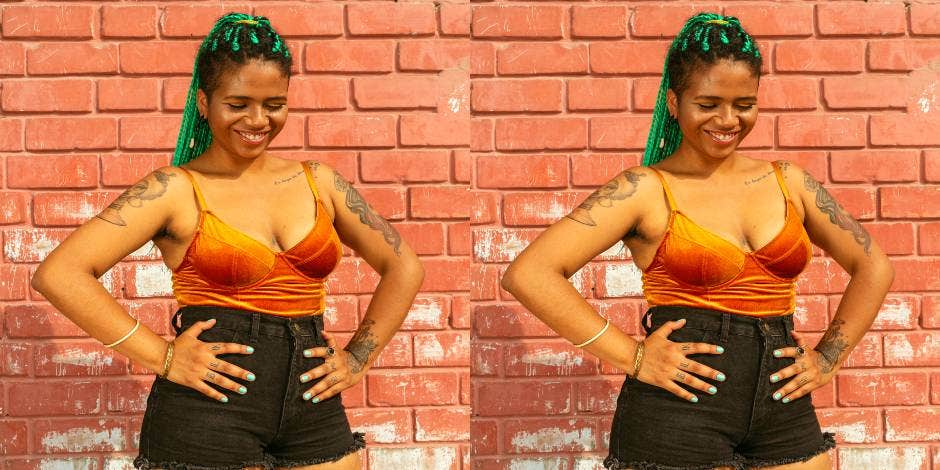6 Steps To Transforming Your Life And Creating Positive Change
You can be the change you want to see in yourself.
 getty
getty How you conceptualize a problem is more important than your “technique” in helping people attain their desired change. Learning how to change your life for the better begins by recognizing how to affect positive change that will permeate to every avenue of your life.
Your happiness shouldn't be reliant on your circumstances in order for you to feel good about yourself. But learning how to overcome problems that have been around for years can feel overwhelming.
Here are 6 steps to transforming your life and creating positive change:
1. Change starts with your mind.
The very fact that you might want to seek help from therapists is because of how you've been thinking about your situation. The mindset you're in right now keeps you stuck.
Yes, active listening is good. Timely empathy is important. But you need to have a different way of thinking about the problem in order to overcome it.
Many people want help, but they may not want to change. Few people want true change — true change is hard to come by, because it involves a revolution of the heart!
In order to build positive change in your life, you need to begin by looking at how you're viewing the situation and start by evaluating the way you think about it.
2. Know your own heart.
What and where is the heart? Do you have access to it? Or have you misplaced the keys to your very own heart?
In the Bible, the prophet Jeremiah called people to examine their hearts as, “The human heart is the most deceitful of all things, and desperately wicked. Who really knows how bad it is?”
Living in 600 BC, Jeremiah was known as the "Weeping Prophet." How not to cry, I imagine, if you kept saying things that people don’t like to hear?
But suppose if Jeremiah was right in his observation about the human heart’s condition, then you too cannot be naïve about the heart — especially your own!
You have to guard your heart like a sacred palace where only the true and noble can stay. Learn what's going on in your own heart.
3. Be completely honest with yourself.
You have to practice honesty with yourself. You need to mull over and sift through your conscious and unconscious intentions.
To remain true and honest with yourself — that’s probably one of the hardest forms of discipline to master. It can be scary to look inside your heart, lest you see the disparity between your true motives and your displayed actions. Clearly, the two do not always align.
How good it is, then, if you can acknowledge the continuous tension and battle inside your heart?
You're neither all bad, nor all good! You're constantly living in the in-between, whereby every moment can be lived either consciously or unconsciously.
4. Ask yourself this magic question
"What do you want? What are you looking for?"
That’s the question I often pose to myself.
Setting your heart’s intention right is half the problem solved. If you don’t know what you want, or if you want what other people want, you may still get nowhere.
Even if you do get somewhere, you would soon discover that it is probably not what you really want.
5. It’s easier to know what you don’t want.
But that’s a good start, anyway — to know what you don’t want, what doesn’t align or fit with who you are and the life you want to create.
The more you spend time listening and getting to know your heart, the more you get in touch with what’s truly important for your core being.
What’s truly important is usually nothing material or glamorous.
6. What truly matters in the end?
When I was a trainee psychologist in Chicago, I was assigned to a dying Vietnamese man. I couldn’t speak his language, and he couldn’t speak mine. I just held his hand and stayed with him for a while. The next time I returned to the ward, I was told he had passed on.
On your deathbed, rarely people still care about how much you own and what else you want to possess or achieve. In your final moments on Earth, what matters to people may vary, but I imagine you might ask questions like these:
- Have I lived well?
- Have I loved well?
- Who is here with me now?
- What is awaiting me in the next (life, space, mystery)?
When you know how you want to die, that’s when you know how you want to live.
When you can answer the questions above, then you can begin making positive changes on how you want to affect your own life, happiness, and needs.
Dr. Wai-Sheng Ng Psy.D. is the founder and clinical director of Growing Space Psychology Center, Malaysia. She has 18 years of experience in the mental health field and is trained in clinical psychology, family therapy, and spiritual companionship. Wai-Sheng is passionate about helping people grow and expand toward greater personal integration and relationship satisfaction.
